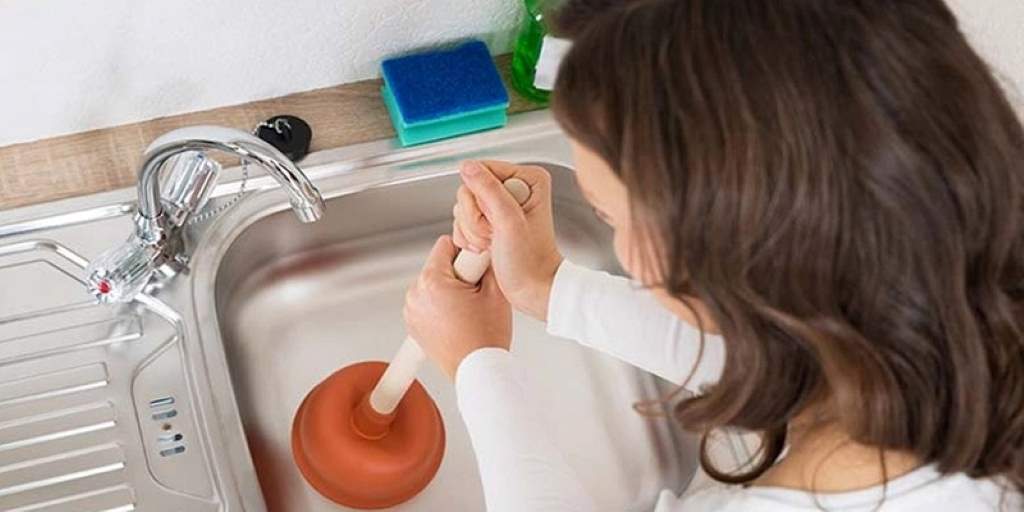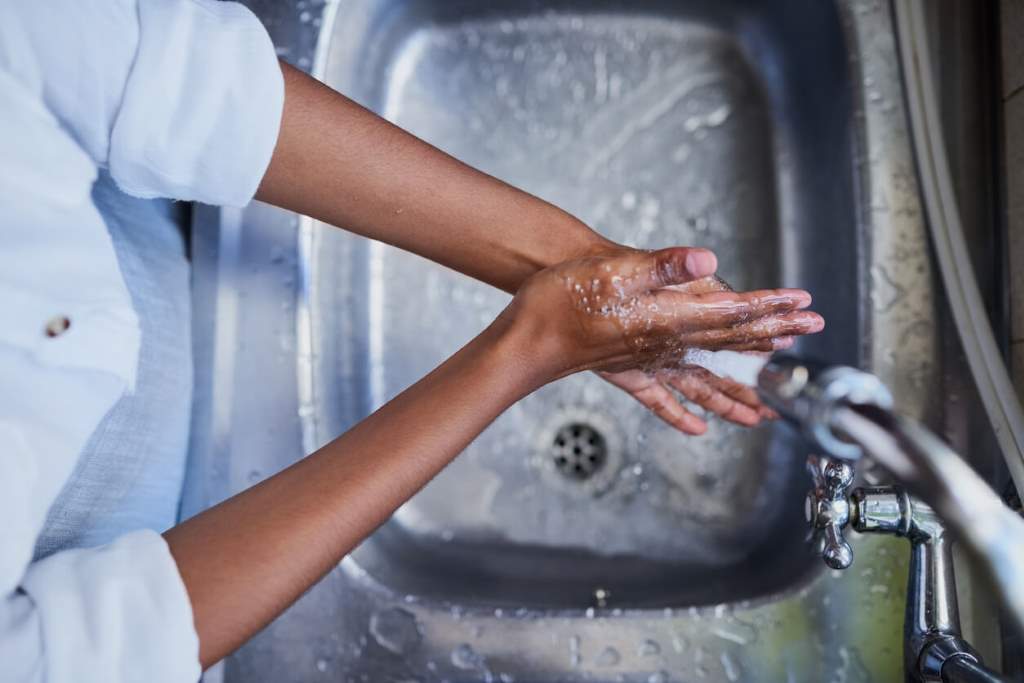
09 May The Mystery of the Gurgling Kitchen Sink: Causes, Fixes, and When to Call a Pro
The cheerful sounds of a working kitchen can quickly be interrupted by a discordant gurgle from the sink. It’s more than an annoyance – a gurgling sink could indicate issues with your plumbing. But before you panic, there are several DIY solutions and troubleshooting steps you can take. Let’s explore the causes and how to fix that gurgling kitchen sink to restore tranquility to your cooking space.
What Causes Sink Gurgles?
- Clogged Drains: The most common culprit, this is usually caused by the buildup of food debris, grease, soap scum, or a combination of everything. These materials create a blockage, forcing air to bubble and gurgle through.
- Airflow Problems: Your plumbing system uses vents to allow air to escape, creating proper pressure for efficient water flow. If these vents are blocked or malfunctioning, it can force air to escape through your sink drain as gurgling sounds.
- Drain and Pipe Design: In some cases, the shape or layout of your drain pipes themselves might inadvertently create a bottleneck effect, causing the gurgle.

Troubleshooting: Finding the Source of the Gurgle
Before diving into specific fixes, use these steps to help pinpoint the issue:
- Multiple Sinks: Are other sinks gurgling too? If so, the problem might lie with your main drain line or vent system.
- Check for a Slow Drain: Does the water take longer than usual to go down? This typically confirms a clog.
- Odor Issues: Unpleasant odors from your sink indicate sewer gases escaping, potentially caused by damaged air vents.
DIY Fixes: Silence that Sink
Here are some methods to fix a gurgling sink on your own:
- The Plunger Plunge: Start with the all-purpose plumbing tool, the plunger. Cover the drain opening fully and pump vigorously up and down to dislodge simpler clogs.
- Snaking the Drain: Invest in a drain snake (or make one with a bent wire hanger) to reach further into the drain to break up or remove clogs.
- Natural Drain Cleaners: If simple clogs seem to be the issue, try a mixture of baking soda and vinegar. Pour ½ cup baking soda down the drain, followed by 1 cup of vinegar. Let it foam for 15-20 minutes, then flush with hot water.
- Commercial Drain Cleaners: If natural solutions don’t work, resort to commercial drain cleaners, following instructions carefully. These chemicals can be harsh, so ventilate the area and avoid overuse.
Advanced Troubleshooting
If the gurgle persists, check these elements:
- P-Trap: This U-shaped pipe under your sink holds water to block sewer gases. Remove the P-trap to manually remove clogs or replace it if damaged.
- Vent Stack: Inspect your roof for the plumbing vent stack. Remove leaves, debris, or even a small animal nest if you find them blocking the vent.
When Calling a Plumber is Your Best Bet
Sometimes, the issue lies beyond easy access:
- Major Clogs Deep in Pipes: Plumbers have specialized snakes and tools to go deeper than a homeowner can.
- Vent System Damage: If the vents are cracked or misaligned, a professional will have the expertise to fix it properly.
- Recurring Gurgles: If despite fixing the clog, the problem returns, you may have issues with pipe layout that need a plumber’s assessment.
Prevention Is Key
Keep your sinks gurgle-free with these tips:
- Strainers: Use sink strainers to catch food particles before they go down the drain.
- Scrape Plates: Before washing dishes, scrape off excess food into the trash.
- Avoid Grease: NEVER pour grease down the drain; it solidifies and causes major clogs.
- Regular Hot Water Flush: Run hot water down your drain for a minute weekly to help dissolve gunk.
Conquering Your Sink’s Gurgles
A gurgling kitchen sink can be fixed with the right knowledge and effort. Remember to consider safety, especially when using chemicals or disassembling pipes. By understanding the causes and following these troubleshooting steps, you can restore peace to your kitchen and avoid costly plumbing bills down the line.



Sorry, the comment form is closed at this time.